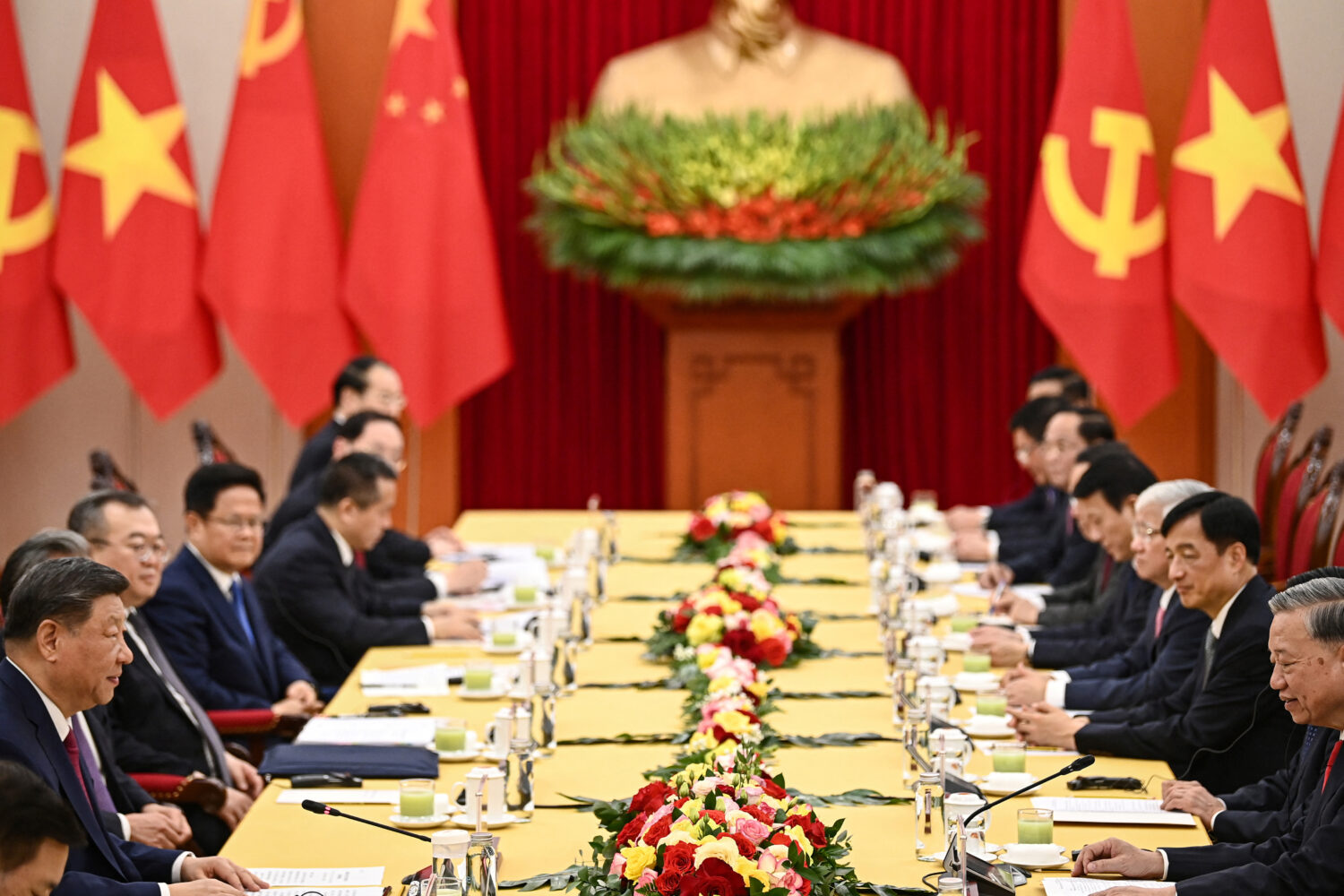In his speech, [Chinese leader Xi Jinping] highlighted the Belt and Road Initiative (BRI) cooperation [with Asian countries], and touted ideas of building high-level connectivity networks, enhancing industrial cooperation, advancing security and law enforcement cooperation, and expanding people-to-people exchanges. China is likely to sign a number of agreements as it seeks to deepen ‘all-around cooperation’ with the three Southeast Asian nations. These are likely to include ongoing attention to digital infrastructure, technology, and governance norms-setting under digital cooperation – and risk further entrenching digital repression in the region.
[…]
Vietnam
Vietnam is emblematic of a digital authoritarian state learning from China’s digital governance norms.
[…]
there is a great degree of similarity between the two laws, pointing to China’s influence over the development of Vietnam’s digital governance. Both laws define cybersecurity in a manner that diverges from conventional, rights-based approach, conflating technical infrastructure security with information control — resulting in enhanced censorship. Both laws also take a centralised approach to critical information infrastructure and promote centralised censorship of information critical of the regime. They require data localisation, raising serious risks of surveillance, and include a number of concerning obligations on foreign tech companies. Both laws also promote real name registration, which further compromises right to privacy and anonymity protections, adversely impacting freedom of expression online. Finally, Vietnam’s approach to cybersecurity models China’s emphasis on individual and tech companies’ requirements to act as surveillance extensions of the Party-State apparatus. Subsequent decrees in Vietnam have positioned the law even closer to its Chinese predecessor.
[…]
Cambodia
In early 2022, Cambodia launched its Cambodian Digital Government Policy 2022– 2035, which referred to China as a positive case study in successful digital government, raising concerns about internet freedom in the country. We are likely to see further tightening of this relationship through additional cooperation agreements and memoranda of understanding.
The starkest example of China’s malicious influence over Cambodia’s digital infrastructure and governance space is in the National Internet Gateway (NIG). In February 2021 Cambodia enacted the NIG Sub-Decree, establishing the country’s version of the Great Firewall of China. Article 6 of the Sub-Decree requires telecommunications companies and service providers to route internet traffic through government-controlled and monitored servers ‘to prevent and disconnect all network connections that affect national income, security, social order, morality, culture, traditions, and customs’. Articles 14 and 16 allow government officials to retain traffic data for a year and issue overbroad penalties for non-compliance. Sopheap Chak, former executive director of the Cambodian Centre for Human Rights, has observed that ‘the proposed NIG mirrors that of the Chinese internet gateway’.
[…]
Malaysia
Malaysia is home to the second-largest Chinese overseas community in the world, after Thailand. It is also among the top 10 global recipients of BRI support; relations with China and digital cooperation are common elements of Malaysian politics. […]
One area where cooperation between China and Malaysia has raised human rights concerns is around partnerships on high-risk Chinese surveillance and artificial intelligence (AI) technology. For example, last year ByteDance, TikTok’s parent company, promised to invest some USD 2,13 billion to develop an AI hub in Malaysia.
[…]
One of the stated objectives outlined the recent Central Work Conference on Diplomacy with Neighbouring Countries has been to expand law enforcement cooperation. This is likely to be among the priorities of Xi Jinping’s trip, and we should expect further discussion on these points in Malaysia. Cooperation on expanding partnership in new and emerging technologies, especially around AI, are likely to also be a focus of the upcoming delegation, as China seeks to both elevate its global norms setting role and further dislodge the United States as a leader in AI technology.


